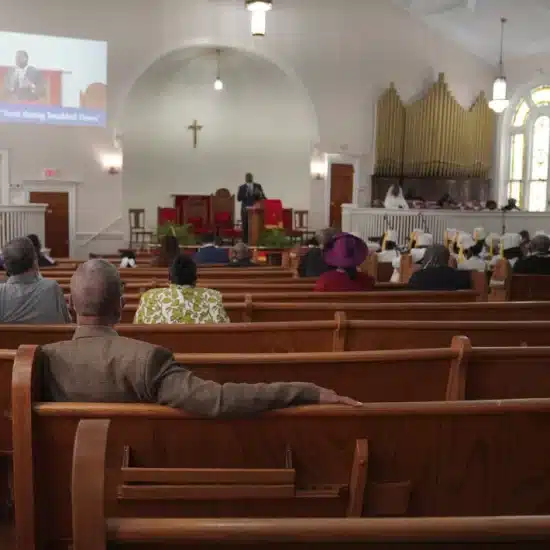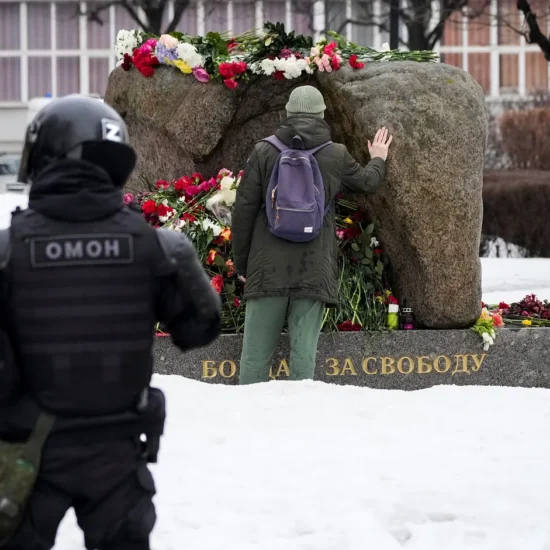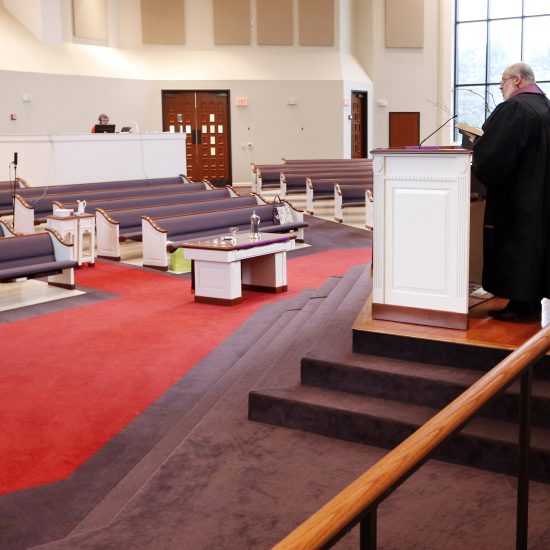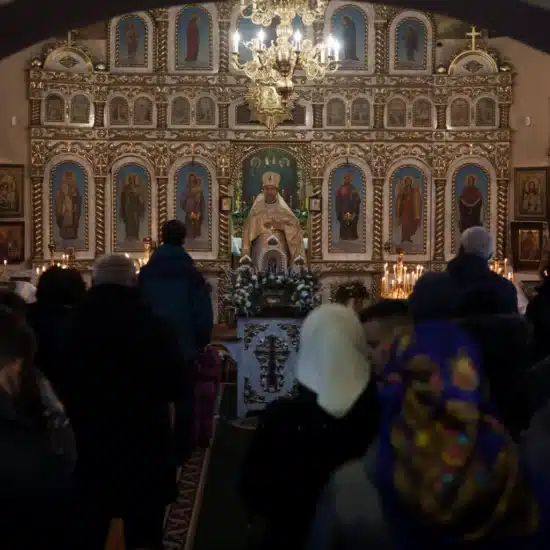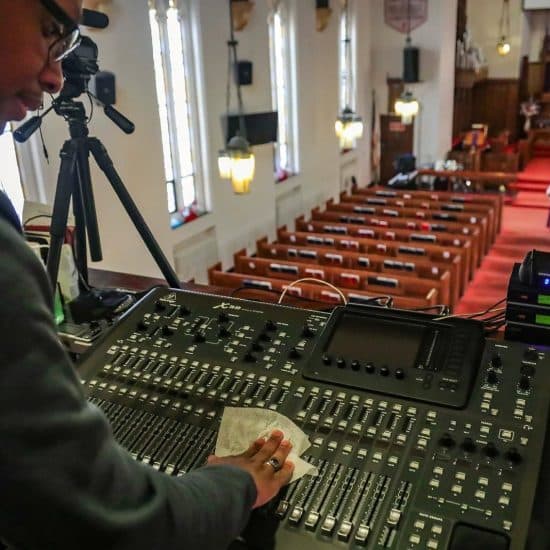
(RNS) — This Christmas is like no other Christmas in recent memory. There is so much missing. At the top of the list of missing things is family.
When I was working with a young-adult club at Holy Trinity parish in Washington, D.C., we used to have an “orphans” dinner during the holidays. No, this was not for literal orphans; it was for young adults who for some reason could not go home for the holidays. It was not a large crowd, so we could gather in someone’s home and that partially filled the emptiness of the holidays for those far from family.
Many people are orphans this Christmas, stuck where they are, unable to return home for Christmas. They are like the soldiers serving abroad, like migrants and refugees in foreign lands.
But even harder hit this Christmas are parents and grandparents who may be having the first Christmas in decades without children for the holidays. Christmas without children is just not Christmas.

A Palestinian boy looks at a Baby Jesus inside the Church of Nativity in the West Bank town of Bethlehem on Dec. 24, 2009. (Nasser Shiyoukhi/Associated Press)
As a priest without my own family, children are what I have always missed at Christmas. Children keep us young. Children see things with fresh eyes. They are still capable of surprise, and Christmas is the greatest surprise of all time.
God’s great surprise began long ago when he sent Gabriel to a young girl, probably about 14 years of age, betrothed but not yet married to a man named Joseph. This girl-woman was surprised, indeed shocked by the angel. Although at first afraid, she welcomed God’s surprise. She was able to respond, “be it done to me according to your word.”
We have heard this story so many times its shock value is lost on us. That is why we need children at Christmas, so we can see the great surprise though their eyes. The God who created the universe, who existed before the big bang, who watches over billions of galaxies, decided to have a son by a young woman of an oppressed people in a backwater town in a primitive age.
If this does not boggle the mind, then we have lost our ability to be surprised; we have become jaded and indifferent. We need to become like little children, looking with wide eyes and open mouths at the child in the manger. Advent and Christmas remind us of the biggest surprise of all time. They remind us to give glory to God who has revealed this surprise kept secret for long ages, as St. Paul writes to the Romans.
Advent and Christmas remind us God can still surprise us, surprise us with mystery, and surprise us with love. The birth of Jesus is the beginning of a journey of surprises that leads through the death and resurrection of Jesus to his coming in glory. Advent and Christmas are an invitation into the surprise mystery that is God.
We must become like little children if we are to enter the kingdom of heaven.
Not completely missing this Christmas, but significantly reduced, is the secular and commercial side of Christmas. No huge crowds at stores and malls. Fewer Santas. A less commercial Christmas is something for which many Christians have been calling for years. After all, we are celebrating the birth of a child in a stable to a couple who could not find room in the inn.
But the COVID virus, which has cut into commerce, has also reduced the numbers who can attend Christmas services. We Christians want to gather to celebrate God’s great surprise, but we cannot. Christians are not individualists; we instinctively want to gather to hear once again the story of God’s great surprise, of the birth of his son. We want to celebrate together, giving praise and thanks to God for his gift.
When Jews gather for Passover, they pray, “Next year, Jerusalem.” This Christmas, Christians should imitate them by praying, “Next year, we will gather again as family and community.”


